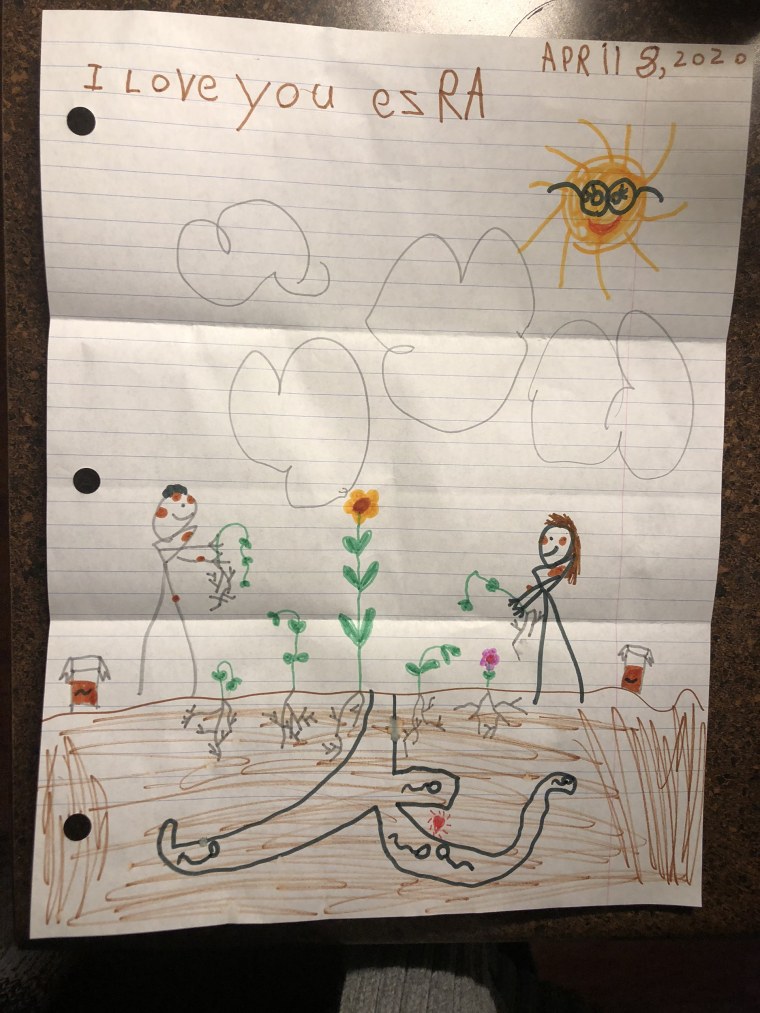Even though Meg St-Esprit only lives 30 minutes away from her niece, Avery, her family was thrilled when they found a letter from her in the mailbox. Since receiving it, St-Esprit's 6- and 8-year-old children have been drafting their message back. They have embraced the joy of letter writing.
“It breaks up the monotony. They get excited to walk to the mailbox down the block (change of scenery) plus it teaches writing in a more sneaky way than some of the rote learning provided by crisis distance learning,” St-Esprit, a freelance journalist in Pittsburgh, told TODAY via email. “It’s nice to get a little surprise.”

St-Esprit’s children also wrote a letter to an aunt who lives in Florida, who "loves it."
“She said she cried when she got the letter,” she said. “Travel plans are indefinitely halted during the pandemic and we aren’t completely sure when we will see her again."
St-Esprit’s family isn’t alone. As the quarantine lingers and travel and visits are postponed, people are finding new ways to connect. Letter writing is a good way to check on loved ones and stay busy. But it also has another benefit: It boosts mental health.
“It provides enhanced structure around the day, particularly for people who take a moment to be reflective about it,” Lily Brown, an assistant professor of psychology and director at the Center for the Treatment and Study of Anxiety at the University of Pennsylvania in Philadelphia, told TODAY. “It might also help people get a sense of giving back to society by doing something that's consistent with their values and those kinds of activities are really likely to be helpful in the face of a really isolating crisis.”
As social media and texting makes it easier for people to share (or overshare) details of their lives, sending a letter requires the writer to be more thoughtful. This reflection can help deepen relationships and these strong bonds make it easier for people to deal with stress.
“The content you might share in a personalized letter might be more vulnerable and less filtered in a way that might help people connect more,” Brown explained.
While few studies have looked specifically at letter writing, research on journaling found that focused writing improves mood and builds resilience. That’s because it uses different parts of the brain that pull people away from being too overwhelmed by feelings and encourages people to think differently.
“Writing can be a potentially helpful exercise when any of us are feeling emotional because it can help to recruit activation of the executive functioning parts of the brain that help build rationality and help to give us some perspective,” Brown said. “That can work to reduce emotional activation.”
What’s more, writing down how we feel helps process our thoughts.
“Labelling your emotional experience, verbalizing your emotions or writing them down can be helpful for processing anxiety-based emotions in particular,” Brown said. “Letter writing might help people open up and be self-reflective in a way that could be helpful.”
And, right now everyone can use a little help worrying less.
“Any time there's a certain amount of uncertainty the emotion that tends to follow is anxiety,” she said. "It’s an anxiety-fueled time for everybody.”